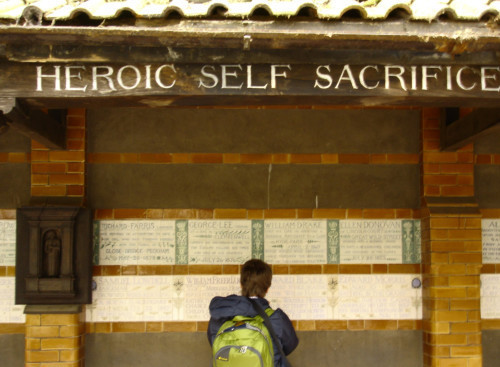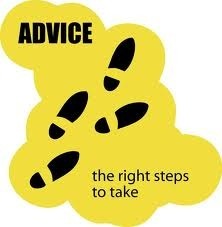P.A. Wilson's Blog, page 16
May 29, 2013
Chocolate as a stress management tool
When stress piles up and you just need a little treat, what do you reach for? It’s a challenge we all face, and we all deal with it differently. We all know it’s not good for us to reach for a food or drink item to manage our stress, but sometimes that long walk or yoga session just doesn’t cut it. 
Chocolate
Eating your stress is the fastest way to become obese. We all have our coping strategies for those days when we can’t get anything to go smoothly.
Chocolate is the once in a while treat. It contains two things that I love, the chemicals that make me feel happy and caffeine. On a day when every movement forward is blocked, taking a walk helps, but a square of chocolate (well, a bar) can just make everything better.
Wine
Perhaps more dangerous than chocolate, alcohol is another thing that will sometimes help to get over the hump. One glass, maybe two, but never more as a stress management tool. Anything over the small limit and it adds it’s own stress to the mix.
Pizza and the rest of the food groups
I love pizza, but I don’t find it helps reduce my stress. I guess I should be happy that there’s something I don’t eat for stress reduction. It’s hard to just have a small piece of pizza, right? The great thing about chocolate and wine, is that the scale doesn’t automatically go up the next day.
So that’s how I look at food and stress
I still find that a walk or other exercise is a great way to really reduce stress. What the walk doesn’t do is make me feel better. I just feel less stressed.
So the three point stress management tip today is,
don’t get too stressed – most challenges are not worth the emotions that bring the stress
light exercise when you do get stressed – something about it takes your mind off what’s going on
when you need it, have a treat. I recommend a high quality chocolate
What do you do to keep stress at bay?
The post Chocolate as a stress management tool appeared first on P. A. Wilson.
May 27, 2013
Heroes, do they come from everywhere?
 Heroes. Have we come to the point where we are so desperate for heroes that we have cheapened the meaning? A look at some of our latest hero stories.
Heroes. Have we come to the point where we are so desperate for heroes that we have cheapened the meaning? A look at some of our latest hero stories.
What I think it means to be a hero
In writing we do a lot of work on our heroes. There are aspects to the development of the character that don’t change no matter what the story. Your hero needs to be a real person. They need to be flawed and they need to make mistakes and they need to have secrets. In the the story, the author uses all of these things to make the hero struggle for the goal.
In fiction, there is a two way relationship involving the hero. The villain frustrates the hero’s every act. The villain also needs to be the hero of their own story.
The hero in fiction doesn’t have to be larger than life. Not every story can hold onto a super hero.
Heroes in life are different
We hear or read stories every day about heroes in real life. Before I talk about recent cases, let me share what I think happens in real life with heroes.
There’s a three way relationship in real life, oddly also in super hero fiction, the hero, the villain and the victim. Without a victim there is no need to be heroic. The villain generally creates the victim and the hero saves them. The three roles don’t need to be filled by three people, but it generally is the case.
Charles Ramsay, had been called a hero for rescuing the three women in Cleveland. He didn’t know if he was risking his life by pulling them from the basement of that home, but he acted anyway. Was he a hero? Let’s see. Victim: the women (they may not stay victims, but for this circumstance they were.) Villain: Kidnappers. Hero: Charles.
It seems to fit the model.
Angelina Jolie, she’s being called a hero for undergoing a double mastectomy to prevent breast cancer. Is she a hero?
I think she is brave to make such a decision. She was stuck with a dilemma, and she chose to maximize her chance to live. but I don’t think she is a hero. She didn’t save anyone by putting her life at risk.
So what do you think. Have we cheapened the actions of heroes by applying the label to bravery?
The post Heroes, do they come from everywhere? appeared first on P. A. Wilson.
May 22, 2013
Ebook availability. Why sell everywhere?
As an author, ebook availability means my readers need to be able to get their books from many sites. Why do I keep my books for sale at unpopular sites when it means more work for no more money? 
What ebook availability means to the author
As a self published author, I have to do all the record keeping. It’s not that difficult to upload the books, it’s pretty much fill in a few fields and then press upload. The work comes from reconciling the reports. I’m not complaining, reconciling sales means I have sales. If I have sales, I have readers. That’s important to me.
Ebook availability is something that prompts discussions in author blogs, and groups. Do we make our books available everywhere, or do we choose one or two retailers and focus marketing there?
The business decision
This is the part of self publishing that many authors hate. It’s about the business and not about the  creativity. Ebook availability is a distribution decision. Every month the business person inside me balances the risk and the effort against the reward.
creativity. Ebook availability is a distribution decision. Every month the business person inside me balances the risk and the effort against the reward.
Ideally every risk and every minute of effort will bring a reward. In real life, most of the reward comes from some of the effort. All of the effort is needed to generate the reward.
My ebooks are available from Amazon, Kobo (that Christmas book is by another P.A. Wilson), Smashwords, B&N (a bunch of those books aren’t by me), and Apple.
Here’s how it breaks down: Amazon, 72%, B&N 23%. So why do I list everywhere else?
The reason I have wider ebook availability?
It’s all about Smashwords. I can’t publish directly to B&N because they currently only deal directly with Americans. And, more importantly for my readers, I can’t provide any free books on a regular basis without them.
Amazon will price match, but not allow free books permanently.
So for the time being, I’ll be still available widely even if my readers mainly hang out in two places.
The post Ebook availability. Why sell everywhere? appeared first on P. A. Wilson.
May 20, 2013
Piracy, books, music, movies lessons to be learned
Over at The Raynfall Agency, Claire posted an article on piracy that is worth a read. I have a conflict between my belief about piracy and my actions. 
Piracy, what I think
I think piracy is stealing. I know that’s not a popular opinion, and it’s an argument Claire and I go over frequently. I know copyright infringement is not theft legally. I still believe that if I created something, I have the right to profit from it or I have the right to sell that right. Piracy means that someone else is taking my right to my work.
People who pirate books, music, or movies, or whatever else they pirate, have a lot of justification they roll out. My favorite is that they would pay for it if it was available to them. Really? I’m supposed to believe that they ignore the fact that a book isn’t made available, but if it was they would pay for it?
What I do about piracy
I make my books available wherever I can. I price my books at a reasonable level. I make some of my books free. I don’t go looking to see if I’ve been pirated. I know I can’t do anything about it. That doesn’t mean I have to change the way I think about it.
What I advise other writers to do about piracy
I’ve been asked by new self published authors if they should apply DRM to their books to prevent piracy. I always advise them not to do it. It doesn’t stop piracy and it can get in the way of your reader enjoying the book wherever they want to read it.
It’s all about effort. If you spend time trying to hold back the tide, you aren’t writing. Eventually piracy will be dealt with one way or another. Authors need to put their effort into writing and building a legitimate readership.
The post Piracy, books, music, movies lessons to be learned appeared first on P. A. Wilson.
May 15, 2013
Self publishing why it’s for me
Self publishing is an interesting journey. When you have full control of your work, you are also fully responsible for the quality of the book. I read over on Passive Voice that the Canadian Writers’ Union is considering allowing self published writers to join. It go me thinking. Would I join if they offered? Would there be something for me?
Why I chose self publishing
I find it helpful to remember that I did choose to self publish. It wasn’t about me being rejected by the traditional world of publishing. I chose self publishing for 3 reasons.
I shuddered at the timelines for getting a book through the traditional process – 3 to 5 years
I wanted to write the stories that were inside me, not force myself to a marketing definition
I like control
I’m happy with my choice. I’ve put out 9 books so far and have 4 more on the schedule for 2013. I get to choose what I want to write next, no contracts for me.
Getting validation from the existing organizations
Self publishing is a crazy world. We are in control of everything and we are alone. When it comes to finding critiques for the book, and cover artists, and marketing copywriters, and well everything, it can take more time to find someone to help than it does to write the book. I’m fortunate that I’ve found great people I can trust to help.
That brings me to the topic of The Canadian Writers’ Union and other groups that have always worked in the traditional publishing world. It’s not enough to “allow” us to join. You need to provide value to us. I’ve joined a few organizations and too many of them are focused on bringing the self publisher into the traditional fold.
We need organizations that deal with our world. I don’t need advice on publishing contracts because I don’t have them and don’t need to be protected against predatory publishers. I don’t need to know what the publishers are looking for because I only care about what my reader is looking for. When you go the route of self publishing, you have that direct link.
Self publishers need support and help in different areas
For those of us who are not hoping for a traditional contract – there’s nothing wrong with that – an organization needs to think about offering help with specific self publishing topics. We are all different, and so I only speak for me.
Give me tips on how to find a community to help me. Give me ideas on where to sell my books, and where not to sell my books. Give me marketing tips.
We will be happy to join organizations that support us, but if your organizational focus is on the traditional model then you don’t want me to be part of your group.
The post Self publishing why it’s for me appeared first on P. A. Wilson.
May 8, 2013
Writing courses abound
Writing courses are a great way to learn and hone your craft. It’s important to find the ones that work for you. How do you know what you need?
The source, how to find writing courses
You can Google the term writing courses, or you can look at sites like Shaw Guides, it’s pretty easy to find courses. The trick is to know which ones are worth your time and money.
I’ve taken a few courses and I like the idea of being selective and still trying new things.
Three types of courses to try
The first one I enrolled in was a community college creative writing course. I found it helpful to get me writing, it focused on short stories which isn’t my style of writing. If you have no access to other writers, enrolling in creative writing courses is a way to meet them.
The second one is workshops at writing conferences. These are tailored to specific topics and are usually a half day at most in length. A conference is definitely a good place to meet writers. It’s also a good place get short bursts of knowledge about different aspects of writing.
The final type of course is the on-line one. I find these handy for a quick refresher of a particular writing skill. Not all of them are full writing courses, but it’s possible to find whole courses online. I recommend doing the Google search on specific skills to find the right session for you.
Getting the most out of the courses
Writing courses will contain gems of knowledge amongst a lot of techniques you already know. The trick is to pull out what you need. I find scanning a course, or listening to podcasts about writing, or reading blogs about writing, gives me the refresher I need.
Look for the style of instruction that feels right to you. Try a few different courses and get what you need to keep you writing.
Good luck.
The post Writing courses abound appeared first on P. A. Wilson.
May 6, 2013
Finding time to write in your schedule
Finding time to write is like finding time for anything. It’s hard to fit anything into our schedules these days. The trick is to value the time to write.
The problem of finding time to write – or anything
I’ve been doing a lot of research lately about this issue. I’ve just worked with a business partner to launch an online course about time management called Success Productivity Skills. The course is for entrepreneurs, but the tools and techniques are perfect for anyone who feels like their schedule is controlling them.
The main challenge to finding time to write is that everyone wants to control your priorities.
The solution
Don’t let anyone control your entire schedule. Start planning your week in advance. Put the MUST Do items in and then put the time to write. It doesn’t have to be hours, a half hour a day would be better than no time, right? It may take a few weeks of experimenting before you make the writing time stick in your schedule, but keep trying. We all have the same amount of time in our days, some of us do a different job of prioritizing it.
When you find the time to write….
This may be the real problem, not knowing how to make the most of the time you have to write. You may have already discovered that waiting for the inspiration to hit is not the best way to use the time you’ve found to write.
I’ve found a trick that seems to get me writing no matter how tired or uninspired I feel. I just start writing dialogue. When I have my characters talking, it seems to get easier to just keep writing. This tip might not work for you, but something will. Try writing a few words of description, or dialogue, or action. Don’t worry about the quality of the writing, just write.
Finding time to write is really only half the solution. Finding something to write is the other half.
Good luck.
The post Finding time to write in your schedule appeared first on P. A. Wilson.
May 1, 2013
Writing advice, how to deal with onslaught
Writing advice is something that comes at every stage of the process. Some you ask for, some you reach out for, and some you have to dodge. Is there a trick to knowing what to take and what to ignore? 
Writing advice the stages
When you first let people know you want to write a book, they will provide you with all the advice they think you need.
When you write the first draft, you’ll ask for writing advice and maybe you’ll get some you like and some you’ll hate. And some of the stuff you hate will be the most valuable.
When you submit your work to an agent, or when you self publish. You’ll get a lot of advice on how to make your story better. Maybe not too late to change it.
How do you know what to listen to?
For me I think there are some guidelines and they are different for writing advice at different stages.
The first stage, when you are thinking of writing a book, I suggest you listen to all the advice you get from writers. They’ve been down the road you want to travel. Try out a few things and see what works for you.
The second stage, where you are getting writing advice you’ve sought out, I suggest you take it all in and let it sink in. There will be advice that you don’t like but will make you a better writer. Think about what you are hearing. Think about what you want your story to be. Then make the changes that work for your book.
The third stage comes in two versions. If you are submitting your book to publishers or agents, you will get advice on making your book more marketable. When you get a deal, you are selling the rights to sell the book, not write it. The editor assigned to you will work with you to improve your book, it’s a partnership at this point.
The second version is the self published route. Once you’ve put the book out there, you might get some advice on tightening it up. I think you need to take that advice into your next book. Changing a book that is already published is easy to do, but you are breaking the deal you made with the people who have already purchased the book.
Good luck.
The post Writing advice, how to deal with onslaught appeared first on P. A. Wilson.
April 29, 2013
Fixing plot holes in your writing
Fixing plot holes is important no matter whether your story is plot or character driven. Holes in your plot will jump out to the reader; character holes may not.
What is a plot hole?
A plot hole is something that breaks the reader’s connection to the story because an action is out of line with the story expectations you’ve built.
For example, fixing plot holes in mysteries is about the logic of the progression of the clues. Your typical mystery will have lots of red herrings and false suspects. Your reader expects to find themselves surprised by the revelations that the person they thought was the murderer isn’t.
What will kick them out of the story is the fact that the murder isn’t linked to the actual murders by a trail of clues they may have misinterpreted.
Three tips on how to go about fixing plot holes
to go about fixing plot holes, you need to be able to find them. Go through your manuscript and make a note of the progression of the plot. Then look at your notes and decide where you need to build plugs for the plot holes.
starting with the last hole, work backwards filling them until you get to the beginning. Don’t worry about being elegant. This is just about building the place markers so your plot progresses smoothly – or as unevenly as you decided it need to be.
now start really fixing plot holes in your writing. You will start at the beginning and revise the fixes. This is where you apply your magic. Take the temporary fixes that you built from the end backwards and make it all elegant.
Plot holes are natural
Don’t worry about having plot holes on the first pass of your revision. When you rush through the first draft, you’ll have problems to fix. That’s why you got it out of your head and onto the page. Plot holes, cliches, telling, and all the other bits of craft are smoothed out in the revision process.
The post Fixing plot holes in your writing appeared first on P. A. Wilson.
April 24, 2013
Conflict in narrative, when is it intense enough
Conflict in narrative is different from conflict in life. In life, you want to mange the conflict. In narrative, you need to intensify it. Let’s start by talking about what conflict means in narrative.
Conflict in narrative, more than just the explosions
When we talk about narrative conflict, we mean that our hero wants something and they can’t have it because the villain gets in the way. This conflict is overarching to the whole story and it needs to be in each scene.
The interesting thing about your scene conflict is that it doesn’t need to be the same conflict. It needs to relate to the overall conflict, but it doesn’t have to be the same. And, in fact, you can even have a different hero for the scene.
By managing the conflict at the scene level, you can intensify the conflict in the whole story.
Scene conflict an example
I’ll give you an example from my current work in progress. I’m writing the third Charity Deacon Investigation and I’ll try to do this without spoilers – although I’m in first draft so the story could change.
The conflict in narrative I’m trying to build is a murder mystery. Over the course of the book, Charity works to solve the murder of a travel agent in New Westminster BC. During the story all kinds of things happen. In one scene, Charity is trying to leave the location and go to Lu’s. So, her goal is to get out of New Westminster. The police want to talk to her about a complaint they’ve received.
The scene conflict is based on the police being the hero of the scene – mainly because they get what they want. During the scene, Charity takes on the role of the villain. She dodges the questions, refuses to talk, protects the person she’s with. But eventually, the cops get what they want.
Aligning the scene conflict with the story conflict
In the case of Charity’s scene there’s dual conflict. The scene has it’s internal conflict, but the reason Charity doesn’t want to answer the questions is directly related to the investigation.
Remember conflict in narrative means that your hero wants something that the villain won’t let them have. Whether that’s accomplished by fist fights, explosions, or a passive aggressive discussion will depend on the story you are writing.
The post Conflict in narrative, when is it intense enough appeared first on P. A. Wilson.



